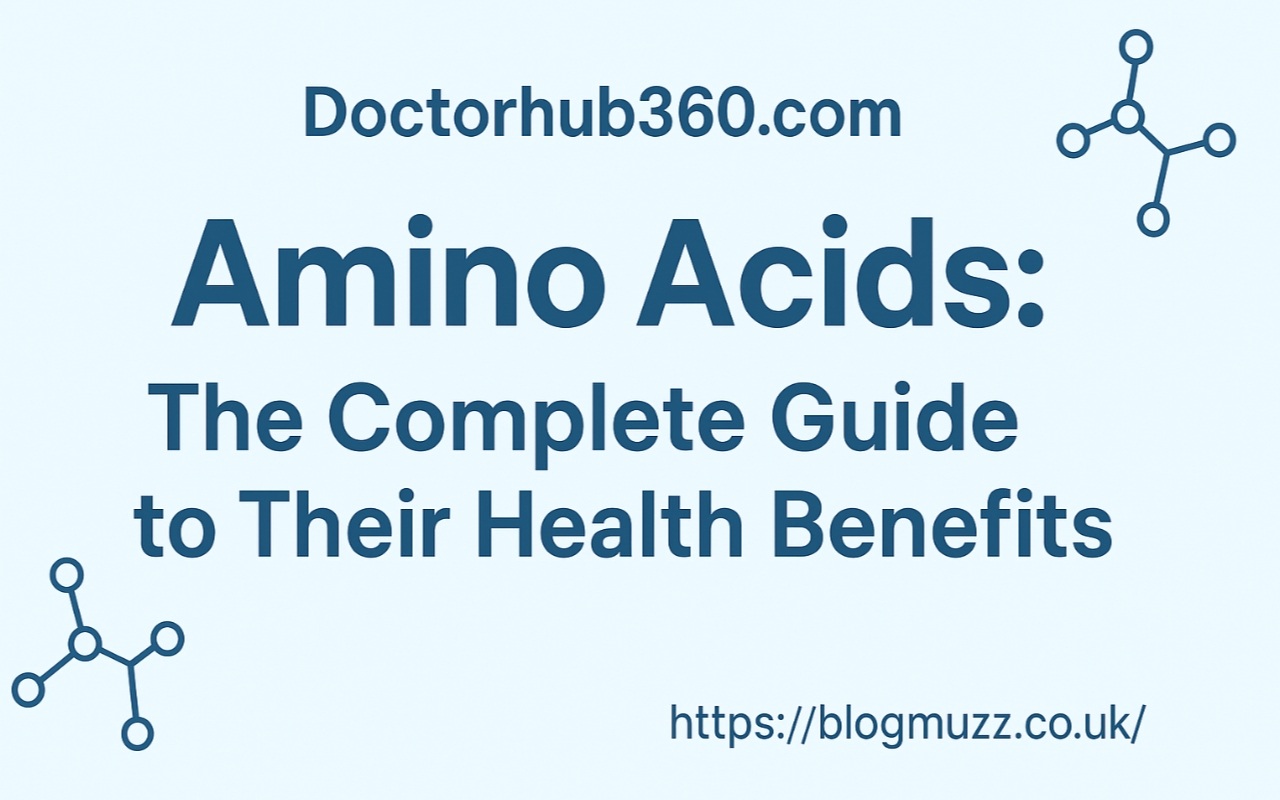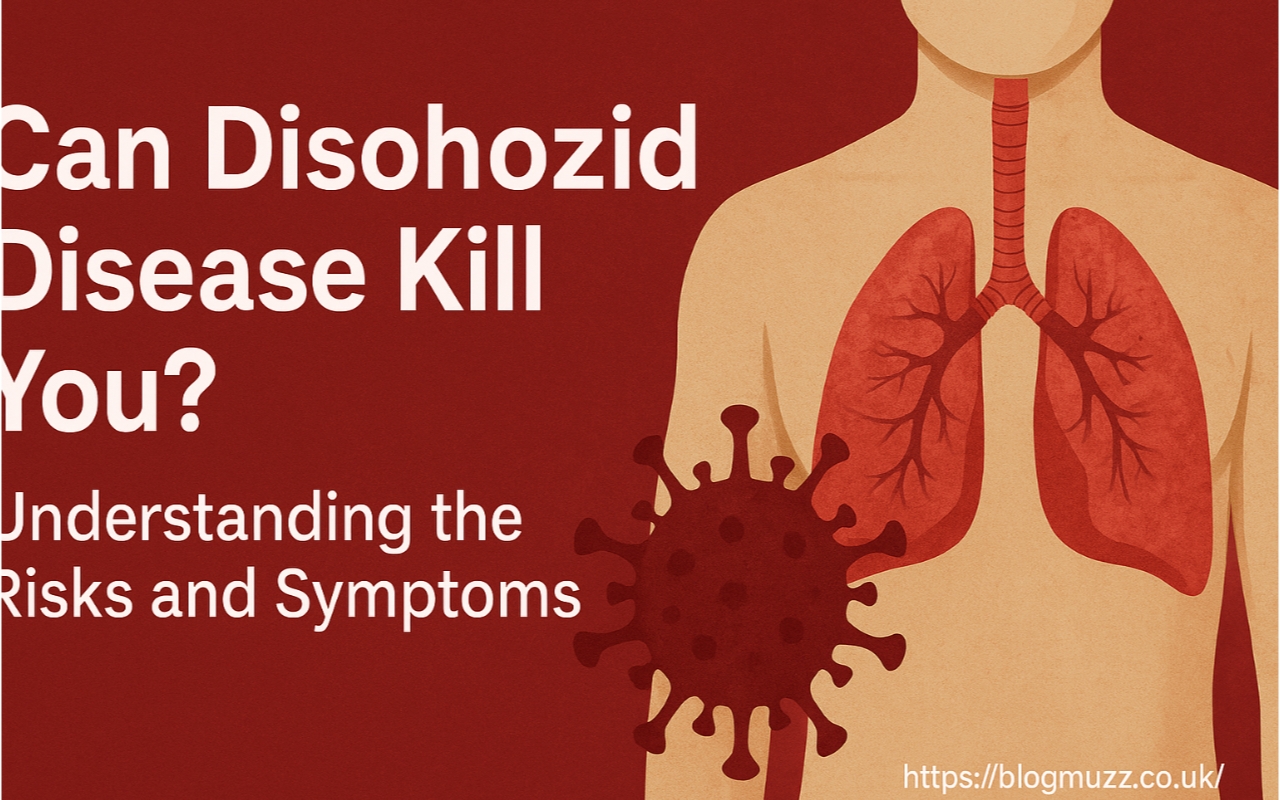Introduction to Doctorhub360.com Amino Acids
Amino acids are often called the building blocks of life, and for good reason. Every cell in the human body relies on these small organic compounds to create proteins, enzymes, hormones, and countless other molecules that sustain life. On doctorhub360.com amino acids are highlighted not just as nutritional elements but as vital tools for achieving better health, improved energy, and overall wellness. Understanding their role is important whether you are an athlete, a student, a professional, or simply someone who wants to maintain good health. In this guide, we will break down the types of amino acids, their functions, and the numerous benefits they bring to the body, making it easier to see why doctorhub360.com emphasizes their importance.
What Are Amino Acids and Why Do They Matter?
Amino acids are organic molecules made up of carbon, hydrogen, oxygen, and nitrogen. They link together to form proteins, which are essential for the structure and function of tissues, muscles, and organs. When you eat protein-rich foods, your body breaks them down into amino acids, which then get reassembled into the specific proteins your body needs. Without amino acids, processes such as muscle repair, energy production, hormone balance, and even brain function would not be possible. Doctorhub360.com amino acids resources explain that while there are over 500 known amino acids in nature, only 20 are needed by the human body, and among those, nine are considered essential because the body cannot produce them on its own.
Essential vs. Non-Essential Amino Acids
On doctorhub360.com amino acids are categorized into two main groups: essential and non-essential. Essential amino acids include leucine, isoleucine, valine, lysine, methionine, phenylalanine, threonine, tryptophan, and histidine. These must come from dietary sources such as meat, fish, dairy, legumes, and certain grains. Non-essential amino acids, such as glutamine, glycine, and serine, can be produced by the body but are still crucial for maintaining balance and health. Understanding the difference helps people make informed dietary choices. For instance, vegetarians and vegans need to be particularly mindful of consuming a variety of plant-based proteins to ensure they are getting all essential amino acids.
The Role of Amino Acids in Muscle Growth and Recovery
Doctorhub360.com amino acids content often highlights the importance of branched-chain amino acids (BCAAs), which include leucine, isoleucine, and valine. These amino acids are directly linked to muscle repair and growth. After intense workouts or physical activity, muscles undergo microscopic tears. Amino acids, especially leucine, stimulate muscle protein synthesis, helping the body rebuild stronger and leaner muscles. Additionally, amino acids reduce exercise-induced fatigue by limiting the production of serotonin in the brain, which is responsible for feelings of tiredness. This is why athletes and bodybuilders often turn to amino acid supplements to improve performance, endurance, and recovery times.
Amino Acids and Brain Health
While amino acids are often associated with physical performance, their benefits for mental health are equally impressive. Doctorhub360.com amino acids articles explain that neurotransmitters, the chemicals responsible for communication between brain cells, are largely made from amino acids. For example, tryptophan is a precursor to serotonin, which regulates mood, appetite, and sleep. Tyrosine is converted into dopamine, which influences motivation and focus. A lack of these amino acids can lead to imbalances, potentially causing anxiety, depression, or cognitive decline. By ensuring an adequate intake of amino acids, individuals can support sharper memory, better focus, and improved emotional well-being.
How Amino Acids Support the Immune System
The immune system relies on amino acids for the production of antibodies, enzymes, and white blood cells that defend against infections. Glutamine, in particular, plays a key role in fueling immune cells during times of stress or illness. Doctorhub360.com amino acids resources emphasize that during periods of high physical exertion or illness, glutamine levels may be depleted, leaving the immune system vulnerable. Supplementing or ensuring dietary intake of this amino acid can help restore balance and promote quicker recovery from sickness. Arginine also boosts immune function by supporting the production of nitric oxide, a molecule that helps blood vessels relax and improves circulation, further aiding immune defense.
Amino Acids and Energy Production
Amino acids are not only structural components of proteins but also play a critical role in producing energy. During exercise or fasting, the body can use amino acids like alanine and glutamine to generate glucose through a process called gluconeogenesis. This ensures that the body maintains steady energy levels even when carbohydrate intake is low. Doctorhub360.com amino acids explain that BCAAs are especially important during long workouts, as they serve as an alternative fuel source when glycogen stores are depleted. This makes amino acids a vital component for athletes, individuals on low-carb diets, or those undergoing intense physical activity.
The Connection Between Amino Acids and Hormonal Balance
Hormones regulate nearly every function in the body, from metabolism to mood. Amino acids play a direct role in hormone production. For example, phenylalanine and tyrosine are involved in the synthesis of thyroid hormones, which regulate metabolism. Arginine stimulates the release of growth hormone, which supports tissue repair and fat metabolism. Doctorhub360.com amino acids content points out that deficiencies in certain amino acids can disrupt hormonal balance, leading to fatigue, weight gain, or mood swings. Ensuring adequate intake through diet or supplements helps maintain hormonal stability and overall wellness.
Food Sources of Amino Acids
One of the key aspects highlighted on doctorhub360.com amino acids pages is the importance of food sources. Animal-based proteins such as eggs, fish, poultry, and dairy are considered complete proteins because they contain all nine essential amino acids. Plant-based proteins, like beans, lentils, nuts, and grains, are often incomplete but can be combined to provide a full amino acid profile. For example, rice and beans together supply all essential amino acids, making them a staple in many cultures. Incorporating a diverse diet ensures that individuals, regardless of dietary preferences, get the amino acids their bodies need.
Amino Acid Supplements: When Are They Necessary?
While most people can obtain sufficient amino acids through diet, some situations may require supplementation. Athletes, people recovering from surgery, or individuals with certain medical conditions might benefit from amino acid supplements to speed up recovery, boost performance, or support immune health. Doctorhub360.com amino acids guides suggest that supplements like BCAAs, glutamine, or tryptophan can be helpful, but they should not replace whole food sources. Instead, they should serve as an additional tool for maintaining balance and health when dietary intake falls short. Consulting a healthcare professional before starting supplementation is always recommended to avoid imbalances or side effects.
Conclusion: Why Doctorhub360.com Amino Acids Matter for Your Health
Amino acids are indispensable to human health, influencing everything from muscle growth and brain function to immune defense and energy production. Doctorhub360.com amino acids resources provide valuable insights into understanding how these tiny compounds impact overall well-being. Whether through diet or supplements, ensuring an adequate intake of amino acids can lead to stronger muscles, sharper focus, better mood regulation, and enhanced immunity. For anyone striving to achieve a healthier lifestyle, amino acids are not optional—they are essential. By learning from trusted resources like doctorhub360.com, individuals can take control of their nutrition and unlock the full potential of these building blocks of life.



